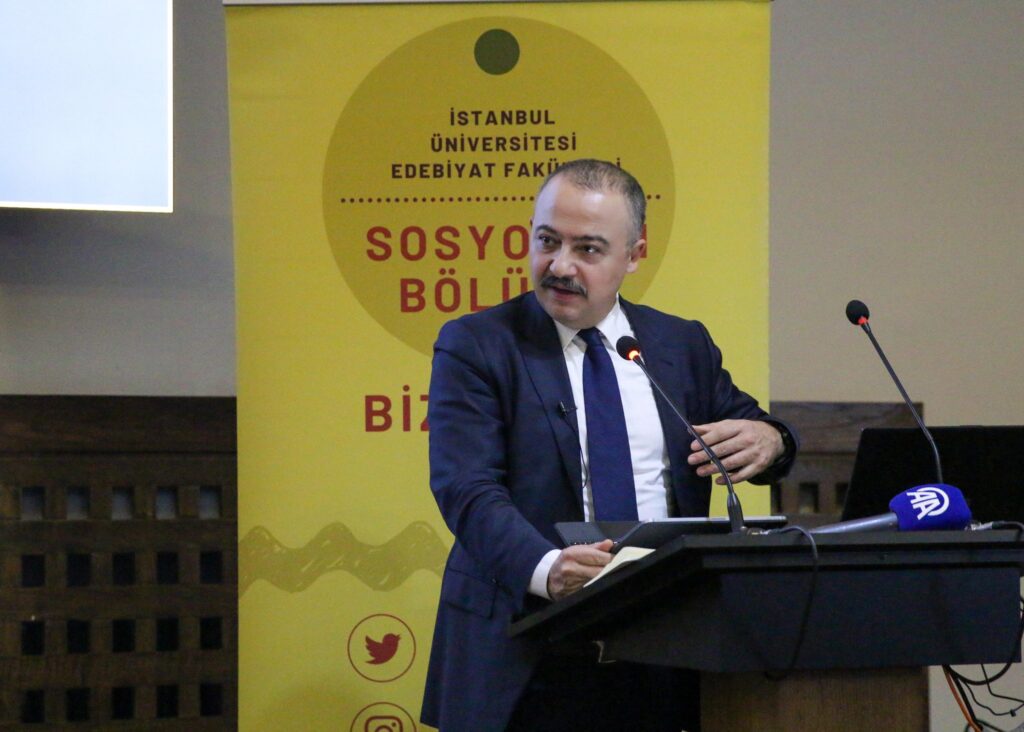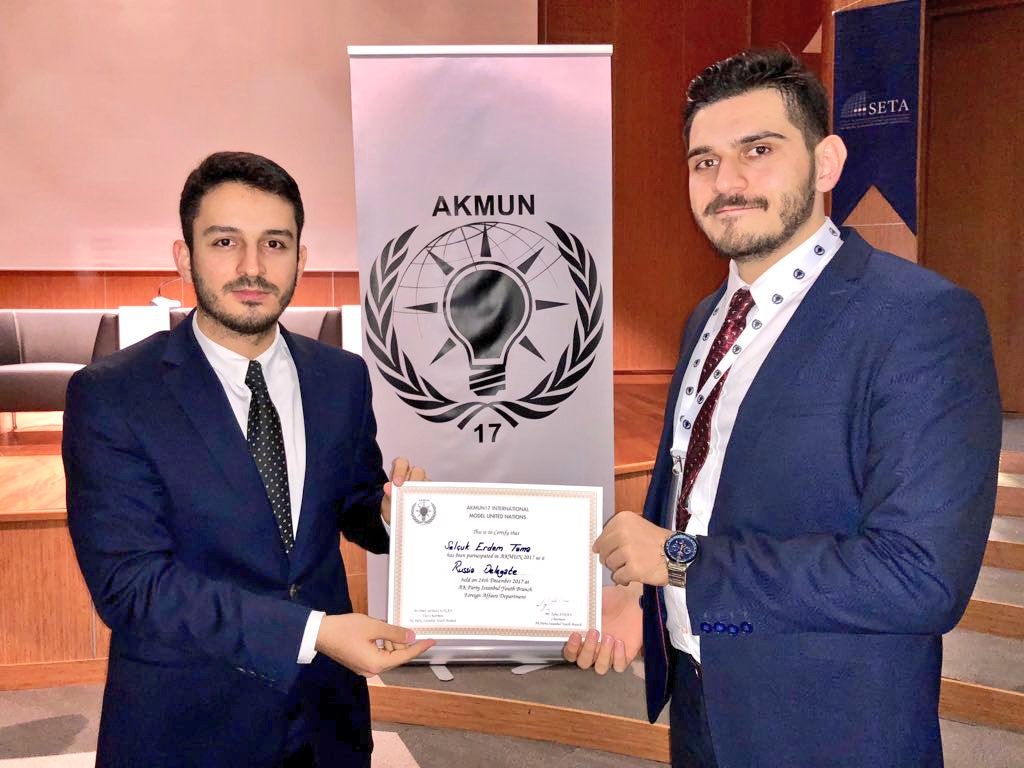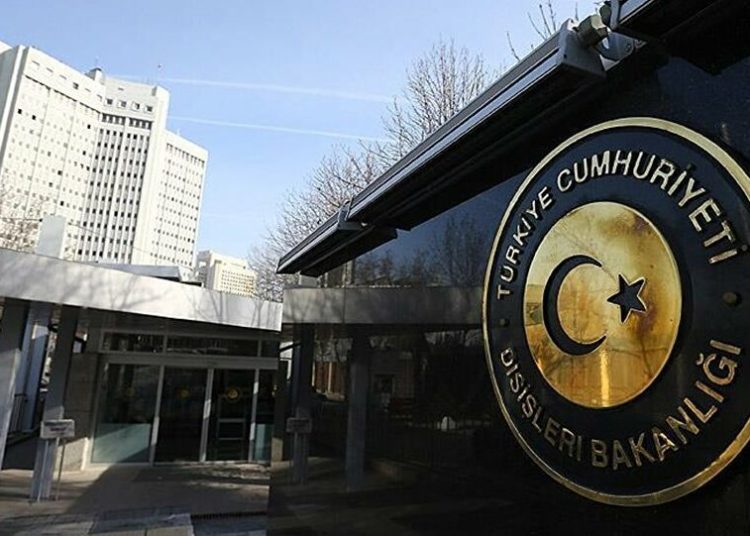Levent Kenez/Stockholm
Nuh Yılmaz, an aide to Turkish Foreign Minister Hakan Fidan, has announced ongoing efforts aimed at reshaping the ministry’s institutional framework and human resources policies. According to Yılmaz, these initiatives signify an upcoming alteration to the prerequisites for aspiring diplomats. In a recent statement he hinted at the likelihood of future changes, suggesting that proficiency in the English language might not remain mandatory for all individuals hoping to pursue diplomatic careers.
During a conference at Istanbul University on December 15, Yılmaz unveiled plans regarding the imminent overhaul of the ministry’s human resources policy. He said one of the pivotal changes includes the removal of the English language prerequisite for aspiring career diplomats. Instead, he emphasized that individuals proficient in other languages such as Arabic, Farsi and Russian, rarely spoken in Turkey, would now have the opportunity to pursue diplomatic roles. Yılmaz also stated that acquiring an additional language would present an advantage for promotion if individuals choose to learn one. This shift in policy signifies a strategic move towards diversification and broader linguistic expertise in the ministry.

Fidan, in a speech in parliament, had expressed concerns regarding the impact of policies requiring rotation in administrative positions within the ministry. He said such rotations have diminished efficiency and stressed the necessity for personnel with extensive experience in key roles, such as human resources.
Fidan emphasized the importance of retaining staff members for prolonged periods in these critical administrative positions, suggesting that the continuity of experienced personnel is crucial for the effective functioning of various departments within the ministry.
A September 2023 audit report from the Turkish Court of Accounts reveals the utilization of foreign ministry funds for NGOs and the recruitment of partisans lacking diplomatic credentials but with close ties to the government.
Former ambassador and current lawmaker from the main opposition Republican People’s Party’s (CHP) Namık Tan highlighted concerns over the increasing number of political appointments, now totaling 22 ambassadors, who lack a background in diplomacy. Tan drew attention to the fact that some 10 out of nearly 30 positions at the general directorate level in the ministry are now held by individuals without diplomatic experience, marking a departure from the ministry’s traditional practices.
It seems that former head of Turkish Intelligence Fidan has taken significant steps to transform the foreign ministry into a vast intelligence tool within President Recep Tayyip Erdogan’s arsenal. Just as he did when he assumed the role of chief of the National Intelligence Organization (MIT) in May 2010, Fidan appears to be swiftly introducing more outsiders into the system. He is also issuing directives to all other departments, essentially directing them to contribute to this transformation.
For instance, the Turkey Youth Foundation (TÜGVA), run by the family of President Erdogan and funded by the Turkish government, instructs young graduates and university students who intend to work at the Ministry of Foreign Affairs in a training program called the “Young Diplomat Academy.” Candidates who are interested in politics and diplomacy and aiming to specialize in these subjects and have a career in these fields are welcome. Those who seek to participate in the program go through an online interview and must be affiliated with TÜGVA. TÜGVA claims to have trained a new generation of diplomats in the “Century of Turkey,” which is a campaign slogan of the ruling Justice and Development Party (AKP). Moreover, the title of lectures during the training program also coincide with the AKP’s propaganda slogans. Nordic Monitor previously published a secret report submitted to Erdoğan by TÜGVA which said the Islamist group had developed a plan to train experts with a special focus on China, Russia and India. According to the report, dated September 29, 2016, TÜGVA’s strategic coordination department drafted a plan to train experts who would work in the field abroad with emphasis on those three countries. Their expertise would cover a range of areas from politics to history and from sociology to the societal dynamics of the countries that were targeted, the report said.
Hacı Ali Özel, previously a deputy to Fidan during his tenure as the head of MIT, was appointed as the director general of personnel in a noteworthy move within the ministry. Prior to this appointment, Özel had responsibility for corporate relations at MİT. In 2018 Özel, who had been nominated as a parliamentary candidate for President Erdogan’s Justice and Development Party (AKP), returned to his role at MİT after failing to secure a spot on the ticket. Before this, Özel had also served as a deputy undersecretary in the Prime Ministry. During the time when MİT was under the jurisdiction of the Prime Ministry, numerous high-ranking intelligence officials held positions as undersecretaries or deputy undersecretaries. Following Turkey’s transition to a presidential system of governance in 2017, the Prime Ministry was abolished and MİT came under the supervision of the presidency.
Yılmaz, who is spearheading the transformation project in the Ministry of Foreign Affairs, joined the ministry as an advisor to Fidan in June. He previously served as MİT’s former press counselor and head of the counterintelligence section.
Yılmaz was appointed to lead the Center for Strategic Research (SAM), a ministry think tank, however, this appointment is symbolic, indicating that he will continue working closely within Fidan’s inner circle.
Yılmaz ran a number of agents, assets and informants in traditional Turkish media outlets as well as online news websites, some of which are obscure and served to muddy the waters by floating conspiracy theories in the past. The leaked emails of President Erdogan’s son-in-law Berat Albayrak revealed in 2016 that MİT was feeding information to Yılmaz’s agents planted in the Sabah daily, owned by Erdogan’s family. Emails from 2012 showed that Sabah journalists Abdurrahman Şimşek, Ferhat Ünlü and Nazif Karaman were in the loop and receiving information from the agency.

Yılmaz attracted attention during an attempted coup on July 15, 2016, when his name appeared on the phone screen during a staged FaceTime interview on CNN Türk between President Erdogan and Hande Fırat, a journalist associated with MİT.
Most recently, Yılmaz was involved in a dispute between the ODA TV news website and Hilal Kaplan, one of Erdogan’s most loyal journalists. Kaplan had referred to Soner Yalçın, the owner of the website, and Toygun Atilla, its then-editor-in-chief, as “Nuh’s dogs” after they published a news story implying infidelity related to Kaplan’s divorce. Kaplan’s statement further reinforced the claims of ODA TV’s alleged affiliation with MİT, which have been circulating for a while.
An investigation by Nordic Monitor in 2022 revealed that Yılmaz maintains strong connections with the Foundation for Human Rights and Freedoms and Humanitarian Relief (İnsan Hak ve Hürriyetleri ve İnsani Yardım Vakfı, or IHH) a Turkish charity known for its role as a logistics provider to al-Qaeda groups worldwide. Yılmaz, a dedicated Islamist at 49 years of age who harbors antisemitic views, took deliberate steps to conceal his controversial background and association with the IHH in his publicly available resumé.












